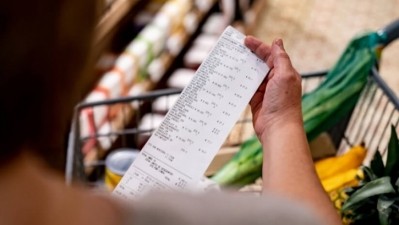News
UK exports to EU down almost a quarter

According to the FDF Trade Snapshot for H1 2024, this decline has been driven by a drop in alcohol exports. Meanwhile, food and soft drinks have remained steady.
Ireland is holding firm as the UK’s largest single export market, with a 1.1% lift in the first half of 2024, reaching £2bn. However, overall exports to the EU have seen a sharp decline, with volumes dropping by 23.6%.
And while exports to the rest of the world are on the up (+0.8%), the fall in EU exports represents a worrying trend.
According to research published this month by Aston Business School, the EU remains a crucial trading partner for the UK. But last year has seen further trade declines than previous, with overall UK exports falling by 27% between 2021 and 2023.
This suggests that that the transition in UK-EU trade relations post-Brexit is not a short-term disruption, but instead represents deeper structural changes that are likely to persist.
British food and drink companies are faced with increasing bureaucracy, as additional checks come into force. This includes the second phase of border changes introduced in April raising fees for businesses; an increase in Sanitary and Phytosanitary (SPS) check rates for meat, milk, and fish products from September; and further implementation of border controls for fresh produce set for next year.
According to the FDF, more than half (59%) of manufacturers believe our relationship with the EU should be a top priority for the new UK Government.
The FDF is now urging the Government to secure an SPS agreement, boost practical support for exporters, and simplify the use of Common User Change.
“There is a lot the Government could do to build exporters’ confidence and support businesses to compete overseas and expand into new markets, including by removing bureaucratic trade barriers,” commented Balwinder Dhoot, director of industrial growth and sustainability at the FDF.
The FDF snapshot highlights certification requirements as the biggest obstacle to growth, with declines in beef and poultry imports since the introduction of the Export Health Certificate on EU imports in February 2024 demonstrating its detrimental impact.
The FDF has also reinforced its feelings towards 'not for EU', calling for Labour to drop these 'unnecessary regulations' which threaten our exports to Ireland and the rest of the world.
In a similar vein, the Association of Independent Meat Suppliers (AIMS) is calling for the new Government to prioritise the renegotiation of a veterinary agreement with the EU.
At present, AIMS argues that the inconsistent approach around veterinary controls and inaccuracy of certification processes have left UK businesses at risk of economic loss, waste and an unmanageable administrative burden.
“The situation is untenable,” said Jason Aldiss, head of external affairs at AIMS. “We are seeing a complete failure in the consistency of veterinary controls, which is compounded by the inaccuracy of the manual, outdated export certification system. Errors in veterinary certification are causing substantial losses for the industry, and without immediate action, these inefficiencies will continue to destabilise the meat sector.”
According to AIMS, the additional paperwork and compliance costs for each lorry carrying an export load can be as much as £1.5k, with UK importers being charged up to £870 per truck in customs fees, even when only 2% of consignments are inspected.
“We are regularly hearing of incorrect documentation that results in shipment rejections. These mistakes are costly to businesses and contribute to waste, as perishable products are delayed beyond their usable life,” continued Aldiss.
“AIMS’ view is that veterinary agreement with the EU is urgently needed. It would address these critical issues by aligning veterinary standards, removing the need for EHCs, and ensuring that veterinary controls are applied uniformly across the UK.
“This would dramatically reduce costs, prevent delays, and restore the efficiency that existed before Brexit.
“It is essential that the UK Government acts now.
“Failure to secure such an agreement will not only continue to harm UK meat and poultry producer’s growth ambitions but will also weaken the country’s food security and sustainability in the long term.”
Beyond Europe
Looking outside the EU, exports to India have risen by 11.9%, reaching £127.2m in the first half of this year.
The FDF has noted that increased market access through a well-balanced free trade agreement (FTA) has the potential to build on this success and boost trade with India.
The UAE has also seen exports rising, by 2.4% in H1 2024, with a trade agreement with the Gulf Cooperation Council (GCC) holding promise for significant trade growth, as we’ve seen under the UK-Australia FTA, where exports have increased by 7.1% to £196.7m.
Imports rose again by 3.2% to £31.1bn in H1 2024.
Morocco (29.4%), South Africa (24.0%) and New Zealand (22.8%) saw the largest increases.
However, with 70.8% of our imported food and drink coming from the EU, as with exports, the removal of non-tariff barriers would make a real difference.
FDF research shows that 47% of its members cite admin costs as a major barrier to imports.
In other news, the Food Standards Agency has confirmed initial regulated products reforms are coming next year.
















